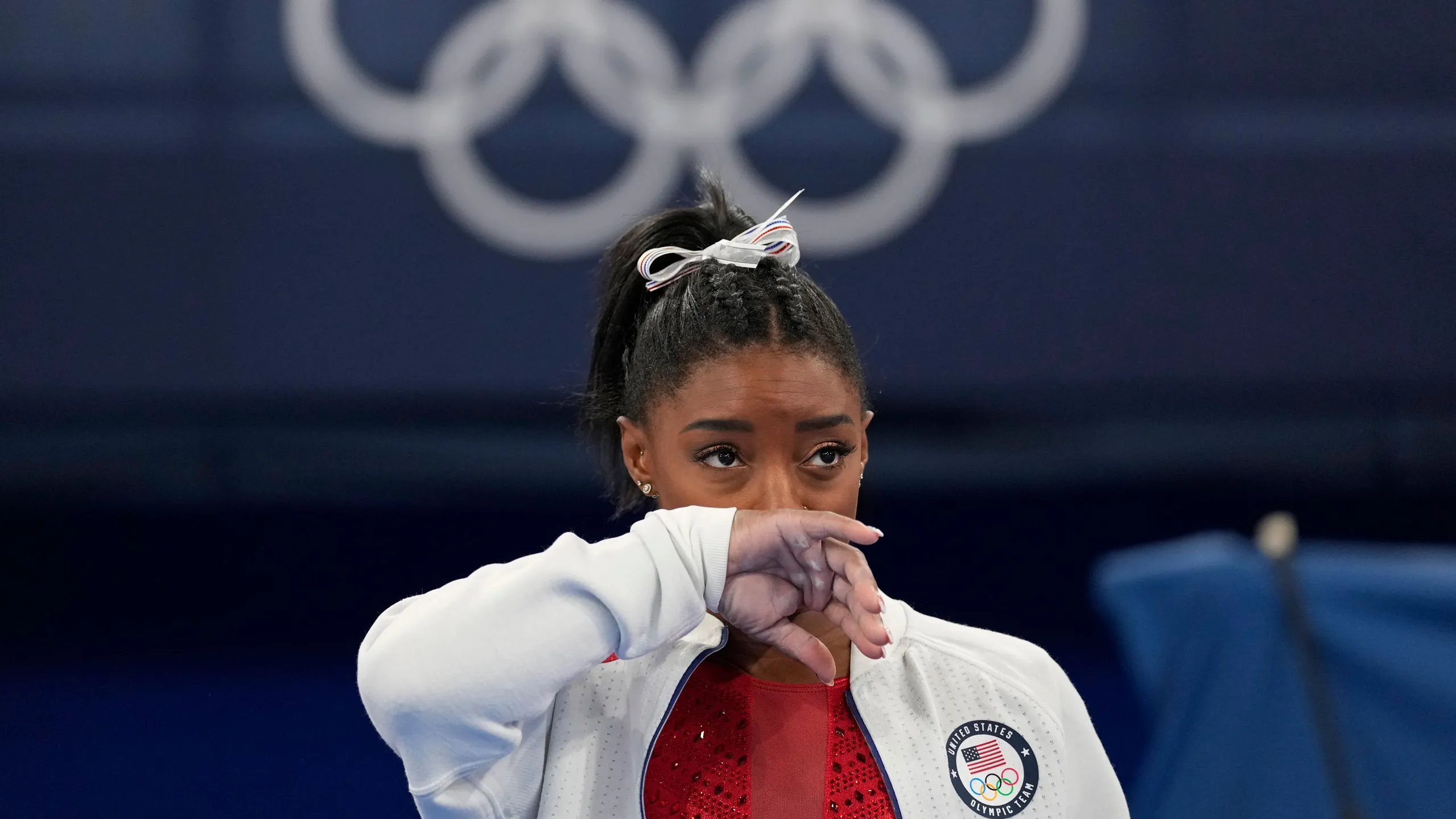
Simone Biles, the most decorated gymnast in history, is known for her extraordinary performances, but equally remarkable is her proactive approach to maintaining her mental health.
After experiencing the pressures that come with competing at the highest level, Biles has designed a plan to protect herself from the mental health struggles that often plague athletes after major events like the Olympics.
Avoiding Mental Stress
Biles is well aware of the toll that high-stakes competition can take on athletes. Competing at the Olympics, where the world’s eyes are fixed on every move, brings immense pressure. Athletes must perform flawlessly while dealing with the weight of their own expectations and those of their fans, sponsors, and countries. This pressure can lead to severe mental health challenges, and Biles is determined to avoid these pitfalls.
It is not uncommon for athletes to face mental health struggles after a major event. The intensity of preparation, the stress of competition, and the abrupt return to “normal” life afterward can lead to what is often called post-Olympic depression. Biles has seen this happen to other athletes and is doing everything in her power to ensure it doesn’t happen to her.
“A lot of athletes, unfortunately, since this is the biggest stage of their life, there’s this thing called post-Olympic depression,” Biles explained in an interview with Vogue. “For two weeks, it’s like we’re rock stars, and then after that, it’s like, okay, carry on with normal life.”
Lessons from the Past: The Break She Took and the Struggles She Faced
Biles’ own experiences have shaped her approach to mental health. After her stunning success at the 2016 Rio Olympics, where she won four gold medals, she faced emotional exhaustion. The world saw her as a hero, but behind the scenes, Biles was struggling. In 2018, she revealed the depths of her mental health challenges during this time, opening up about the toll it took on her well-being.
She confessed that during this period, she was overwhelmed by feelings of hopelessness. She slept constantly as a way to escape reality, a behavior that is often a red flag for severe depression.
“I slept all the time,” Biles said. “And it’s basically because sleeping was better than offing myself. It was like my way to escape reality. And sleeping was the closest thing to death for me at that point, so I just slept all the time.”
Biles’ candor about her struggles resonated with many, bringing attention to the mental health challenges athletes face, even those who seem invincible. Despite the darkness of that period, she was able to pull herself out and make a triumphant return to competition in 2018.
Learning from Others: Michael Phelps and Mental Health Advocacy
Biles is not the first elite athlete to speak openly about mental health struggles. Olympic swimmer Michael Phelps, who holds the record for the most Olympic gold medals, has also been candid about his battles with depression and suicidal thoughts. Phelps’ public statements about his mental health journey have inspired many, including Biles, who admires his openness and his advocacy for mental wellness.
Biles, however, is determined to avoid the same fate that befell Phelps and others who have struggled after the high of Olympic success. In response, she has crafted a plan to maintain her mental health and prevent falling into a dark place. Central to this plan is her commitment to regular therapy sessions, which she has openly credited for helping her stay grounded and healthy.
“For me, I’ll still be attending my therapy sessions, because I know how important that is for me to be mentally and physically well,” Biles said. “So I’ll be ready for my appointments, back to regularly scheduled programming.”
The Importance of Therapy and Self-Care
Therapy has been a crucial part of Biles’ mental health routine, offering her a safe space to process her emotions and the enormous pressures of her career. By continuing to prioritize therapy, she is ensuring that her mental health remains as much of a priority as her physical fitness. Biles recognizes that being mentally well is just as important as being physically prepared for the challenges of elite gymnastics.
Her approach is not only about self-preservation but also about setting an example for other athletes and individuals. Mental health is often overlooked in the sports world, where the focus is primarily on physical performance. Biles, along with other athletes like Phelps, is helping to change the narrative, highlighting that mental wellness is crucial for long-term success and well-being.
Simone Biles’ Master Plan: A Balanced Approach to Life
As Simone Biles continues to compete and dazzle the world with her athletic prowess, she is also living proof of the importance of balancing physical and mental health. Her proactive plan to manage stress, avoid burnout, and prioritize therapy is a model for how athletes—and anyone facing intense pressure—can protect their mental well-being.
Biles’ commitment to her mental health shows her resilience and maturity, making her a role model beyond her gymnastics achievements. By taking control of her mental health, Biles is setting herself up not just for success on the mat, but for a long, fulfilling life beyond her career in gymnastics. Her openness and advocacy for mental health will continue to inspire others to take their own mental wellness seriously, reminding us all that even the strongest among us need help sometimes.
Leave a Reply